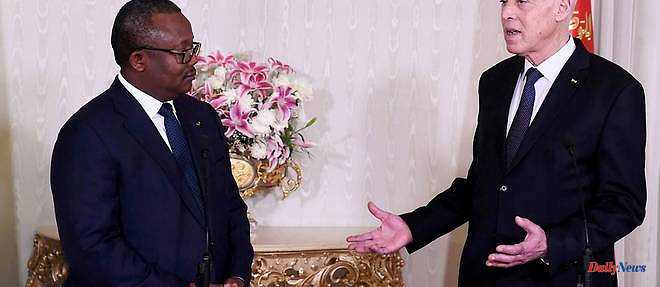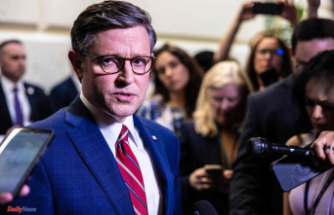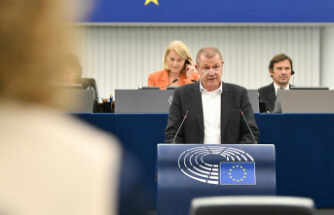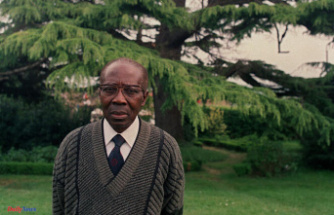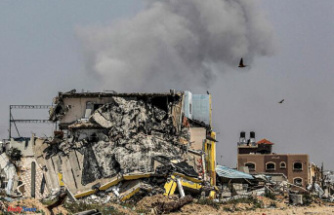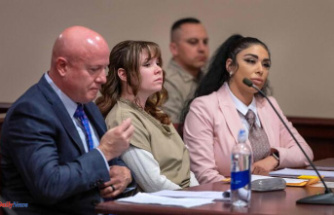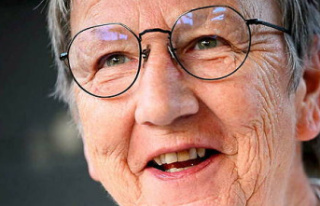Tunisian President Kais Saied, who had not been seen in public since March 22, reappeared in a video of his services early Monday evening and denied any power vacuum.
A few hours earlier, the leader of the National Salvation Front (FSN, the main opposition coalition) had called on the government to reveal the reasons for the president's "absence", claiming to have been informed that he had had "problems of health".
Amid speculation that he had serious health problems, Mr Saied spoke on Monday night of "a degree of madness never seen in Tunisia".
"The president has been away for two or three days, he has caught a cold and it's becoming a problem, a power vacuum, a vacuum? These people deserve nothing but contempt," he said, receiving the head of the Najla Bouden government.
Earlier, the head of the DSF, Ahmed Néjib Chebbi, had spoken to the press "asking the government to address the Tunisian people and say if there are health reasons which forced the president to absent".
He had urged the authorities to specify "the nature of these health reasons", stressing that in the event of a temporary vacancy of power it was up to the head of government to ensure the interim.
Mr. Chebbi had also warned of the risk of a "great catastrophe" in the event of a permanent vacancy, such as in the case of death or serious illness, due to a legislative void.
Under the terms of a new Constitution promulgated in the summer of 2022 by Kais Saied, it is the President of the Constitutional Court who must replace the Head of State until a new presidential election is held. However, the Constitutional Court has not yet been set up.
"This affair concerns all Tunisians and it is necessary, in the event of a permanent vacancy, to launch serious and open consultations so that the Tunisian people and the civil and political forces agree on a mechanism for the transfer of power", added Mr Chebbi.
Since the evening of March 22, the president had not carried out any activity, meeting or trip in public, according to the presidency's Facebook page -- the only official communication channel -- which sparked speculation on social media about his health.
In the video from the presidency, Mr Saied denounced without naming them people who "try to create crises". The power vacuum "is in their heads, these people have lost their bearings, they are obsessed with power," he said.
Mr. Saied, 65, democratically elected to the presidency in 2019, has concentrated all powers since July 25, 2021.
Despite the entry into office of a new parliament in March -- largely deprived of its previous prerogatives -- the president continues to rule the country by decree.
In early February, the already high tensions between Mr. Saied and the opposition rose to a new level after the arrest of leaders of the FSN and the Islamist-inspired party Ennahdha, a member of this coalition and Mr. Saied's pet peeve. since his coup.
Mr. Saied called the twenty or so people arrested, who also included businessmen and the director of Tunisia's most popular private radio station (radio Mosaïque), "terrorists", accusing them of "conspiracy against security of State".
NGOs and the main opposition parties have denounced an "authoritarian drift" in Tunisia, shaking the young democracy that emerged from the first revolt of the Arab Spring in 2011.
03/04/2023 20:19:04 - Tunis (AFP) - © 2023 AFP

